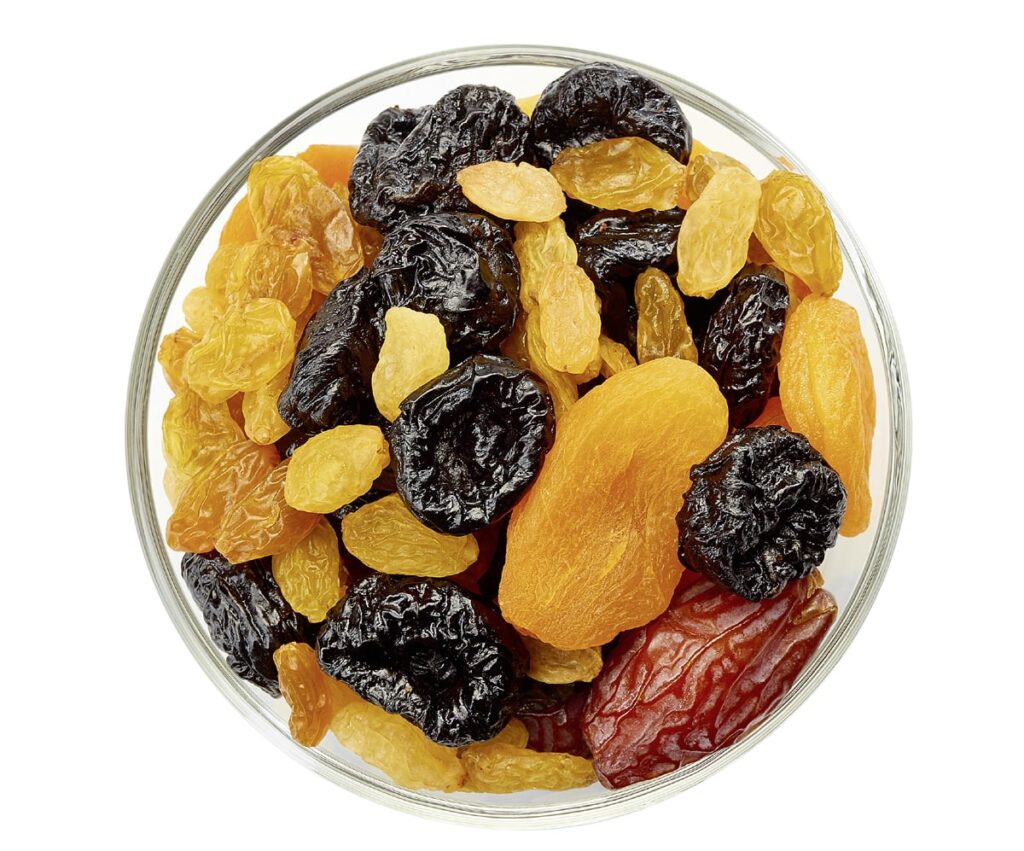How much dry fruit should I eat per day? Dry fruit is one of the most nutritious snacks on the planet. It’s packed with vitamins and minerals, as well as antioxidants.
However, it’s important to eat dry fruits in moderation so you don’t end up with too many calories.
RELATED: Is It Too Late To Take Prenatal Vitamins At 32 Weeks
In this post, we’ll look at how much dry fruit you should eat each day and give you some tips on how to include dry fruits in your diet.
Understanding Portion Sizes
The serving size of dry fruits depends on several factors, including age, gender, and individual calorie requirements.
However, as a general rule of thumb, a serving of dried fruit is about one-quarter cup (about 30 grams).
RELATED: Balanced Diet Food Time Table For Family
However, it’s important to remember that portion sizes should be based on your overall calorie needs and dietary goals.
Balancing Calories and Nutrients
According to research, dried fruits are high in nutrients, but they are also high in calories because they contain a lot of sugar and fat.
Eating a lot of dried fruits can cause you to eat too many calories, which can cause you to gain weight if you don’t exercise and eat right.
Factors to Consider
How much dry fruit should I eat per day? The answer depends on your age, how active you are, and your overall eating habits.
RELATED: 10 Sneaky Habits That Could Accelerate the Aging Process
If you’re a couch potato or have dietary restrictions, you may want to adjust your portions.
Practical Tips for Consumption
- Limit portion sizes: Eliminate excess calories by sticking to the recommended daily serving size of one-quarter cup of dry fruits.
- Choose Variety: Dry fruits are a great source of many nutrients and antioxidants, so make sure to include them in your diet.
- Pair with protein and fiber: Mixing dried fruits with nuts or Greek yogurt packed with protein and fiber can help keep your blood sugar in check and help you feel full.
- Monitor added sugars: Dried fruits with added sugars can increase your calorie intake, but they may not provide the same benefits as unprocessed fruits.
- Stay hydrated: Dry fruits contain little to no water, so make sure you drink plenty of fluids throughout your day to keep your body hydrated and help with digestion.
RELATED: Why Your Tongue Turns White and Ways to Get Rid of It
How Much Dry Fruit Should I Eat Per Day FAQs
How much dry fruit should I eat per day?
The amount of dried fruit you should eat each day depends on a variety of factors, such as your age, how active you are, and how much you eat each day.
Generally, however, it’s best to go for about a quarter cup or 30 g of dry fruit per day.
Can I eat unlimited amounts of dry fruits?
Dried fruits are also high in calories, so it’s important to eat them sparingly to avoid adding extra calories to your diet, which can cause weight gain.
Are some dry fruits healthier than others?
All dry fruits are good for you, but some are more nutrient-dense than others. To reap the full nutritional and antioxidant benefits of dry fruits, it’s important to include them in your diet.
How can I incorporate dry fruits into my diet?
Dry fruit can be eaten as a snack, mixed into oatmeal, in yogurt, salads, or baked. Just make sure you don’t eat too much.
Are there any risks associated with eating too many dry fruits?
Eating a lot of dried fruit can cause you to eat too many calories, which can cause you to gain weight if you don’t exercise and eat right.
Can I eat dry fruits if I’m trying to lose weight?
Yes, you can add dry fruits to a weight-loss diet, but it’s important to monitor portion sizes and overall calorie intake to stay within your calorie goals.
Should I avoid dried fruits with added sugars?
It’s best to choose unsweetened varieties of dried fruits to avoid unnecessary added sugars, which can contribute to excess calorie intake.

